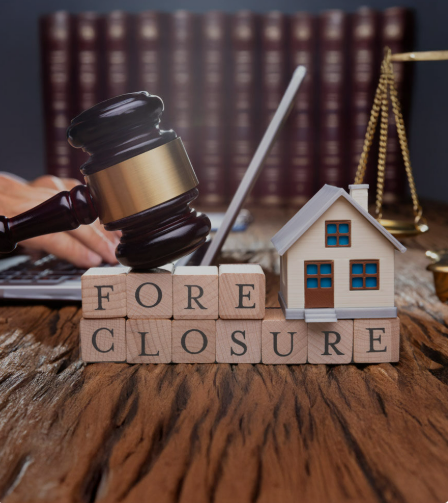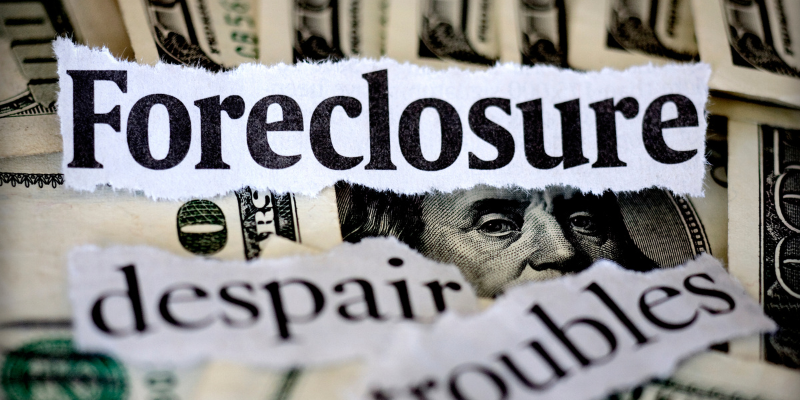
One of the most stressful experiences a homeowner can go through is facing the possibility of foreclosure. The emotional and financial burden can lead many people to feel overwhelmed and without options. As a Minnesota homeowner searching for answers about foreclosure after missing a payment, you should understand that you are not isolated—and most importantly, you do have options. K&G Investments works with homeowners in situations like these, and in this guide, we will look at ways to safeguard against losing your home, explore foreclosure-relief options, and outline steps to help you regain control of your finances.
Understanding Foreclosure in Minnesota
A lender can repossess a home if a borrower has missed mortgage payments and the lender initiates a foreclosure. Most Minnesota foreclosures are non-judicial, meaning they do not go through the court system but rather follow the timelines and steps in the Minnesota foreclosure statutes. After a mortgage payment is missed, a lender usually follows up with a notice of default. After that, if payment isn’t made, a property can be scheduled for sheriff sale in just a couple of months.
There are certain protections that a Minnesota homeowner is guaranteed. Homeowners usually have a six-month period to claim their property back after a sheriff’s sale. This is called a redemption period. This is very important because if you do not take action after the redemption period, your house can be lost to foreclosure. The optimal way to handle this is to take action quickly so that the foreclosure process does not advance.
Take Immediate Action: Contact Your Lender Immediately and Don’t Ignore the Problem
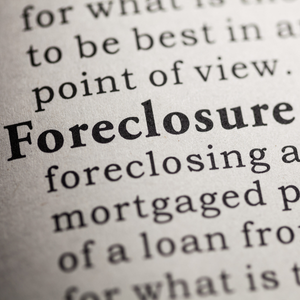
The single biggest mistake that homeowners make when dealing with foreclosure is taking too long to act. Whether it is fear, denial, or confusion, it leads to missed opportunities for a resolution. Once you find that you are in danger of missing a mortgage payment, or have already missed a payment, you need to begin to communicate with your lenders and servicers. There are financial distress programs that lenders have to service their temporarily distressed borrowers. You may be able to negotiate a resolution to your situation that does not ultimately end in foreclosure.
Relaying information clearly is important. There are many different services that assist borrowers. Clearly outline your situation and support it with evidence as needed. Oftentimes, lenders are open to alternatives like loan modifications, forbearance, or repayment plans. These options could change your loan terms or even pause your monthly mortgage payments so that you have time to regain your financial footing.
Communicate with Your Lender Early and Often
If you are having difficulty managing your monthly mortgage payments, then the first thing you should do is contact your mortgage lender or servicer. Don’t wait until you’ve missed a house payment or received a notice to accelerate letter—reach out at the first sign of financial trouble. Mortgage lenders understand that borrowers can go through difficult financial times, and they often have foreclosure prevention options designed to help you avoid the risk of foreclosure because foreclosure doesn’t happen overnight .
Reaching out to your lender before defaulting gives you the chance to apply for a loan modification, repayment plan, or forbearance, all of which could reduce your mortgage payment. Banks are likely to cooperate with borrowers who demonstrate the effort to correct their situation. Keep in mind that mortgage banks would prefer not to begin foreclosure proceedings. They want to work with you to enable you to continue with your regular mortgage payment. Above all, make sure to maintain communication that is straightforward and frequent.
Explore Loan Modification and Foreclosure Prevention Options
One of the most useful techniques for homeowners seeking to halt foreclosure is a loan modification. With a loan modification, you change the terms of your existing mortgage, making payments more manageable. This is done by lowering your interest rate, extending the loan payoff period, or incorporating past-due amounts into the loan balance.
Numerous lenders in Minnesota engage with either federal or state programs that help homeowners with loan modifications. As part of the process, you might have to provide a hardship letter, income documentation, tax returns, and a budget. If a loan modification is approved, it can halt the foreclosure process and help you stay in your house.
It’s important to work with your loan servicer directly or consult a HUD-approved housing counselor, who is knowledgeable about housing and urban development, to assist homeowners in understanding their options and avoiding foreclosure, to ensure you’re exploring legitimate options. Be cautious of scams that promise foreclosure relief in exchange for upfront fees.
Consider Refinancing—If You Still Qualify
Although it is more difficult once payments have been missed, refinancing your mortgage could be an option for homeowners with sufficient equity and a decent credit history. Refinancing replaces your current mortgage with a new loan that has better terms—such as a lower interest rate or monthly payment.
This option works best if your financial issues were short-term, and you’re back on track. If successful, refinancing can pay off your existing loan in full, thereby stopping the foreclosure process. Keep in mind that not all lenders will approve a refinance during active foreclosure proceedings, so timing is critical.
Sell Your Home Before Foreclosure Occurs
If keeping the home is no longer feasible, selling your property before foreclosure is finalized may be the most practical and financially beneficial route. Selling your home can also be an effective strategy for avoiding foreclosure if you are unable to keep up with payments. Many Minnesota homeowners in pre-foreclosure opt to list their homes on the open market. If the home sells for enough to cover the mortgage and associated costs, the foreclosure process will be halted, and your credit score will take far less damage than it would from a completed foreclosure.
In a competitive housing market, some homeowners may even be able to sell quickly and walk away with equity, especially when looking to sell your home for cash in St. Paul or in nearby cities. For those facing foreclosure or otherwise struggling financially, or for homeowners with limited time or property issues that would complicate a traditional sale, working with a cash buyer may provide a faster solution. These buyers purchase homes as-is and close quickly, often within days—making this an ideal option for avoiding a sheriff’s sale.
Explore a Short Sale with Lender Approval
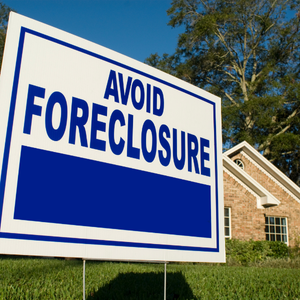
If your house is worth less than the mortgage amount, a short sale may be a better option than foreclosure. In a short sale, the mortgage lender agrees to a loss, accepting a lower amount than owed to them, and in return, removes the lien against the house. Although this has negative credit consequences, it is better than a foreclosure. In a short sale, you have much more control over the outcome.
Homeowners ought to check with their mortgage company regarding options to prevent foreclosure prior to pursuing a short sale. In order to initiate a short sale, a homeowner must complete a hardship package with their lender, including evidence of their financial distress. After receiving approval, the homeowner can proceed to list the property for sale and will have to negotiate with the lender in a review of the offers. This can be quite complicated, so working with a short-sale-savvy real estate agent or a housing counselor who knows Minnesota foreclosure law is advisable.
Use the Redemption Period Wisely
Minnesota law stipulates that upon the sale of a home, the state grants a homeowner a post-sale redemption period. This timeframe generally lasts six months, but may vary under certain conditions. When a mortgage is in default, and a homeowner is unemployed, this period becomes vital for addressing any lingering financial problems. You have the right to make a full payment on your mortgage, including fees and interest, to repurchase your home, thus putting foreclosure on hold. This period is critical, especially for those who experience a change in financial circumstances or secure new funding.
The redemption period does not prevent foreclosure from happening; however, it does give you one last chance to save your home before having to leave. During this time, some homeowners try to refinance, negotiate a settlement, or sell your home for cash in Maplewood or in nearby cities. Understanding your rights during this period is critical, and working with a foreclosure attorney can help maximize your options and improve your chances of achieving the best possible outcome.
Know Your Rights: Federal and Minnesota Foreclosure Regulations
Knowing your rights as a homeowner is critical when dealing with foreclosures. Federal and Minnesota foreclosure laws offer important protections. FHA-insured homeowners are entitled to special protections as well. The Federal Housing Administration (FHA) provides loss mitigation services and informational materials for FHA-insured homeowners facing financial difficulties or unemployment. FHA offers assistance in the form of loan modification, repayment plans, and other options to prevent foreclosure.
In Minnesota, the foreclosure process typically begins with a notice to accelerate letter from your lender, followed by a sheriff’s or public trustee’s sale if the default isn’t resolved. Before the sale date, you have the right to reinstate your loan or pursue other foreclosure prevention options. It’s crucial to contact your lender immediately if you receive any foreclosure-related notices. For additional support, reach out to a HUD approved housing counselor by calling toll free 800-569-4287 or visiting the HUD website to find a housing counselor near you. These professionals can help you understand your options, access mitigation programs and informational resources, and guide you through the steps needed to avoid foreclosure.
Seek Legal Assistance if Necessary
Minnesota homeowners in foreclosure may benefit from consultation with a foreclosure attorney. An attorney can describe your options and legal rights and help you identify possible defenses as a result of the lender’s possible lack of adherence to proper protocols. In very limited circumstances, the existence of potentially incorrect notices or violations of federal and/or state foreclosure laws may afford you the opportunity to contest or postpone the foreclosure process.
If you’re thinking about bankruptcy, legal assistance can be valuable. With bankruptcy, there is an automatic stay that can temporarily stop foreclosure. More specifically, Chapter 13 bankruptcy can, in some cases, let you repay past-due mortgage payments over an extended payment plan of 3 to 5 years. This is a complicated process that can have serious financial impacts on you in the future, so you should speak to a bankruptcy attorney for guidance before taking any steps.
Work with a Cash Buyer for a Fast Exit
When the clock is ticking and the risk of foreclosure looms large, collaborating with a foreclosure home buyer can give you a quick, hassle-free solution to stop foreclosure and save your credit from irreparable harm. Cash buyers can purchase your home in any condition and close before the sheriff’s sale.
Most Minnesota homeowners choose this option because it saves them from having to do repairs, appraisals, and tedious back-and-forth negotiations. A local, reputable investor or home-buying company will give you a fair cash offer, help with the paperwork, and may even work with the lender to pay off the mortgage before the foreclosure takes place.
If maintaining your credit, reducing your legal worries, and starting afresh are goals, then selling your home to a cash buyer may be the most viable option.
Minnesota-Specific Resources for Homeowners Facing Foreclosure
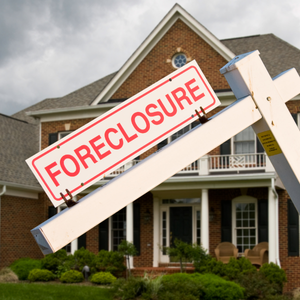
A variety of state-specific resources in Minnesota aid homeowners in keeping families in their homes and preventing foreclosure. The Minnesota Homeownership Center provides free foreclosure advocacy and counseling, as well as tailored materials to help local homeowners address their challenges. Furthermore, the Homeownership Assistance Fund helps financially the occupants who are economically challenged and who are impacted by their inability to pay their mortgage.
If you’re going through a foreclosure, you can call the Minnesota Attorney General’s office regarding questions about the foreclosure laws, prevention programs, and what rights you have as a homeowner. Resources like these that are specific to Minnesota work to help you avoid going into foreclosure, understand what help you can get to make your mortgage payments, and what your legal protections are. Always contact your lender as soon as you can if you’re in this situation. You can also call the national servicing for support, and you can also reach out to a HUD-approved housing counselor or an attorney to help you make good decisions about your home and your future.
Conclusion
Foreclosure can feel like a runaway train, but the reality is you have more power than you might realize—especially when you act early, because foreclosure doesn’t happen overnight. Whether your goal is to keep your home or exit the situation on your own terms, understanding how to stop foreclosure gives you a critical advantage.
Homeowners in Minnesota facing this particular challenge have options, such as loan modifications, refinancing, short sales, and partnering with cash buyers. Remaining informed, taking action, and obtaining professional assistance are vital.
Your home represents more than a place to live—it’s a part of your financial foundation and personal story. Don’t let foreclosure write the ending for you. Take action today, explore your solutions, and reclaim your future with confidence.
Are you facing foreclosure and looking for a way to stop foreclosure before it’s too late? If you need to sell your home quickly, avoid costly repairs, and choose a hassle-free solution, K&G Investments is here to help. We specialize in helping homeowners stop foreclosure by providing fair cash offers, handling all the details, and making the process simple and stress-free.
Ready to protect your home and explore your options? Contact us at (612) 400-8070 for a no-obligation offer. Get started today and take the first step toward stopping foreclosure.
Helpful Minnesota Blog Articles
- How to Determine Your Home Value Before Selling in Minnesota
- How To Sell My House In Foreclosure and Stop It in Minnesota
- Minnesota Mortgage Demand
- Cost for Removing Asbestos in Minnesota
- Sell a House During a Divorce in Minnesota
- Selling a House With Water Damage in Minnesota
- Can I Defer a Mortgage Payment in Minnesota
- Can You Sell a House With a Lien in Minnesota
- Selling a House With Mold in Minnesota
- How to File Quit Claim Deed in Minnesota
- How To Sell A House With Foundation Issues In Minnesota
- Can The Seller Back Out Of A Contract In Minnesota
- Minnesota Inheritance Laws Explained
- Minnesota Excise Tax Calculator
- Can You Sell a House With a Mortgage in Minnesota
- Best and Worst Neighborhoods in Minnesota


